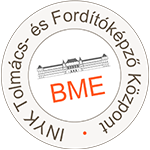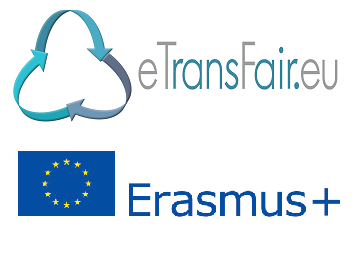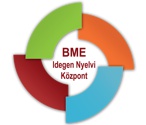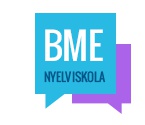Trainee report on BME TFK Autumn Conference 2017
Trainee report on BME TFK Autumn Conference 2017
BME TFK Autumn Conference
September 29-30, 2017
Budapest University of Technology and Economics (BME)
Centre for Modern Languages
Centre for Interpreter and Translator Training
There was beautiful sunny weather and apparently great interest at the Autumn Conference of the Centre for Interpreter and Translator Training at Budapest University of Technology and Economics (BME TFK). Traditionally, the conference is held around the day of St. Jerome, at the end of September. This year, the event took place on 29-30 September, organised in cooperation with OFFI (Hungarian Office for Translation and Attestation Ltd.), Kilgray Ltd. and the Budapest Office of DG for Translation of the European Commission.
Nearly 200 visitors attended the conference, where translator and interpreter trainers, leading experts in the field of machine translation and representatives of OFFI and the DGT held lectures. The central topic of the presentations was assessment in translation, with special attention to developmental pedagogy and innovative pedagogical methods. During the lectures anybody could ask questions on translator training, correcting translations and the problems of revision and review. The presentations highlighted the major concerns and expectations held by the translation market, training institutions and trainees – a knowledge that could be sufficiently used by would-be translators and interpreters, trainers and future clients as well.
At the opening of the lecture series Márta Fischer (BME), Benigna Quirin (OFFI), Ágnes Szakolczai (DGT, Budapest) and Balázs Kis (Kilgray) presented their welcome speeches. Márta Fischer held the first plenary lecture, demonstrating developmental assessment methods and their challenges in everyday education, according to Edina Robin’s research findings. During a most interactive and entertaining plenary lecture (the second one in row) held by Balázs Kis, the attendants could have a peek into communication problems occurring during the translation workflow, and the solutions for eliminating these throughout translator training.
After a short coffee break, the presentations of Ágnes Einhorn (BME) and Ágnes Lesznyák (DGT, Luxemburg) ended the afternoon. Ágnes Einhorn introduced the pedagogical background of testing and assessment. From her lecture, it turned out what innovations can be used and what dilemmas are there to be faced by trainers throughout the developmental and assessment process of students. Ágnes Lesznyák delivered her account on the role of post-assessment at the DG for Translation of the European Commission. Among several things, she represented how the DGT can grant the proper quality for translations and what kind of assessment system do they use in-house. This was quite useful information for novice translators.
Further positive factors of the first day of the conference were a small book fair and the opportunity to purchase the software memoQ at discount price.
Despite the early morning start of Saturday’s programmes, the opening lectures of Olívia Seidl-Péch, Zsuzsanna Ugrin and Csilla Szabó – lecturers at BME TFK – saw the great lecture room filled to capacity. They presented the results of a SWOT analysis of Hungarian translator training institutions. The research covering 12 institutions explored their strengths, weaknesses, as well as their opportunities and threats along with and their plans for future developments.
Throughout the remainder of the morning – following the coffee break – participants split into two groups, since everyone could choose the workshop that fitted their interest more. Both sections’ schedules were appealing, so it was hard to make a choice. One section consisted of short discussions about the assessment of translation, regulated by András Dudits (University of Szeged) and Péter Csatár (University of Debrecen). The other section (I attended), saw three lecturers presenting workshop talks. This is what I am going to give a detailed report on.
The first presenters were Dorka Balogh (PPKE JÁK – Pázmány Péter Catholic University, Faculty of Law and Political Sciences) and Márta Lesznyák (SZTE – University of Szeged). Their research was about monitoring the assessment of specialized translations in the field of law for pedagogical and research purposes. They had compared and analysed the translations of students at the faculty of arts with law students, concerning quality aspects. The aim of the research was to detect the different assessment criteria and their level of importance used by evaluators. The lecturers made it clear that it is very important for the sake of students to draw a distinction between grading and developmental assessment, though it is impossible to evaluate the quality of a translation (in our case a legal translation) from educational aspects. As both of them put it, ‘There is no perfect translation, nor is there a perfect correction’. As for a trainee, their lecture helped me understand what is going on in a teacher, and how to look at the assessments on my revised translations.
The second workshop was held by Judit Vándor (PE – University of Pannonia), who delivered a speech on the role of self-reflection and proper self-assessment in translation and interpreting. She gave very interesting examples to support her reasons for emphasizing the importance of teaching ethics during translator training. Today there is very little support available for students concerning questions in the field of ethics, although they will have to deal with tasks of great responsibilities. Due to shortage of time, she could not go into details, but the topic’s thought-provoking nature was very useful.
The last lecturer at the workshop was Győző Yang-Zijian (PPKE – Pázmány Péter Catholic University). His presentation was about the methods, advantages and disadvantages and practicability of machine translation. In his evaluation, he strongly emphasized the fact that machine translation is still not in the phase so as to fully rely on it, but it is perfectly suitable for information-mining. Although these software are extremely complex, they can help translation in many ways and, in the future, great progress can be expected in this area.
In the afternoon of the second day of the conference, attendees could choose from two programmes. One of them was the presentation of Adrienn Kiss from OFFI about the safe ways of assessment used in official translation processes, while in another room Csilla Szabó held a workshop for trainers and students about translation assessment. Making a choice was hard again, but finally opted for the latter.
There was a lot of information at this trainer-trainee workshop to consider for teachers and students as well. Both groups had the chance to share their opinions and suggestions related to assessment. It was quite much to my pleasure that everyone could get some advice for developing their translating activities constructively. There were numerous reasons on both sides, but the most positive experience was having the chance to find common ground in the framework of this conference.
For the closing of the event there was a buffet lunch, from where everyone could leave in high spirits and full of useful advice. As an attendee, I found the organization, technical background and the preparedness of the lecturers outstanding. I also liked the free-and-easygoing style of the lectures, while another positive point was that all opinions were welcome and attempted to be built into the conclusions. As a student, I could get a lot of information that I was not at all familiar with. I especially liked that the importance of assessment was taken into consideration from the viewpoints of the market and clients, technology and pedagogy as well. I had the chance to get to know about a lot of aspects that –as a trainee and novice translator – I had little information about. Now I have a clearer picture about the trainers’ opinions on assessment and students’ reception of it, which will be a great help when entering the market as a translator.
I also would like to highlight that I also profited from the conference as a teacher. Now I have a different view on assessing my own students and I will definitely distinguish between grading and developmental assessment. A further positive point was for me to see a teaching community so conscientious about their own development and their determination to incorporate students’ needs into their everyday work.
Thank you for the opportunity!
Julianna Garbacz, specialized translator and interpreter trainee, English-Russian
Programme, photos and the slides of the lectures presented are available at the following links:
http://tfk.bme.hu/bme-tfk-oszi-konferencia-2017







